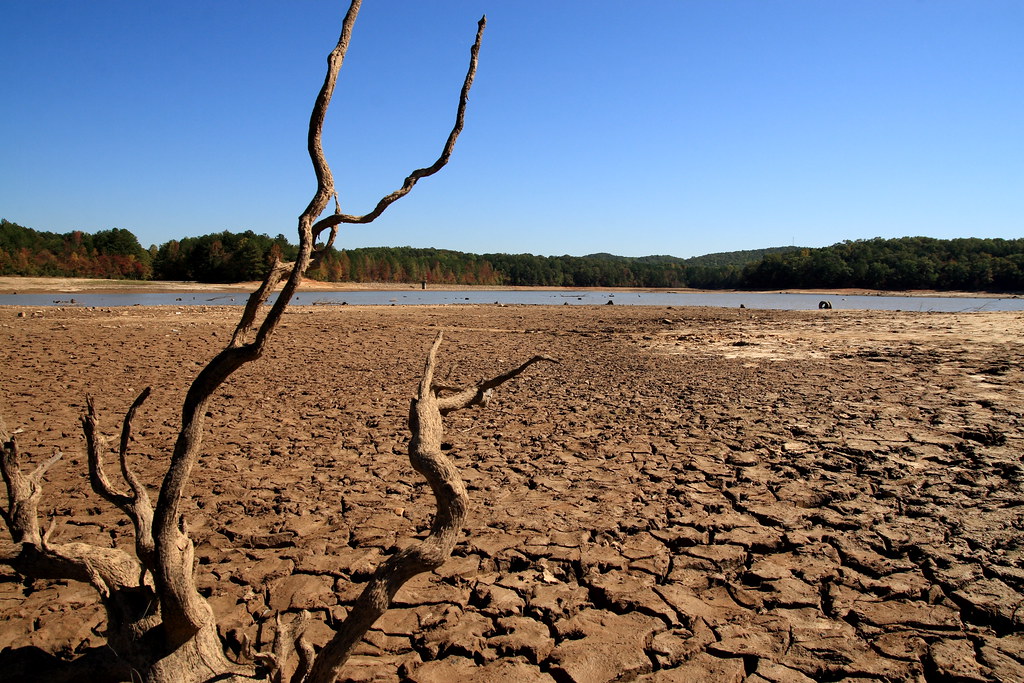The medium – and long – term global impact of environmental degradation as a result of climate change is a concern for officials, experts and laymen alike. Environmental problems affect economic, social and political developments throughout the world. It has been predicted by many studies that the impact of climate change will be more acute in vulnerable regions and groups that face multiple stresses at the same time such as pre-existing conflict, poverty and unequal access to resources, weak institutions, food insecurity and incidence of diseases. Such regions include Ghana and Africa at large.
The International Institute for Environment and Development (IIED), has indicated that Climate change will severely impact upon vulnerable regions and vulnerable groups because of its effect as a threat multiplier and also as a result of their vulnerability and risks faced by people whose human security are threatened. Conditions such as conflict, poverty, weak institutions, food insecurity and spreading diseases will expose communities unable to meet the challenges of adaptation to climate change impacts and will exacerbate their existing problems.
Climate change is a complex phenomenon affecting many aspects of international politics, economics, migration, human rights, development, trade, health and environmental systems. It can also act as a stressor making situations of instability, conflict, and humanitarian crises more likely and severe.
Several studies have shown the impact of climate change for international and national security and this article presents some impacts of the phenomenon below. It is important to acknowledge that several threats to international stability and security have been identified and below are a few of them:
- Climate change can lead to conflict over resources. Climate change can lead to reduction of arable land, widespread shortage of water, diminishing food and fish stocks, increased flooding and prolonged droughts;
- Economic damage and risk to coastal cities and critical infrastructure for example: the reported incidence of high tidal waves washing away communities in some parts of the Volta Region;
- Climate change leads to loss of territory and bring about border disputes. Receding coastlines and submergence of large areas could result in loss of territory, including entire countries such as small island states. The resultant effect are more disputes over land and maritime borders and other territorial rights;
- It will lead to environmentally-induced migration. The Intergovernmental Panel on Climate Change estimates that the number could reach 50 million by the end of the decade and up to 200 million by 2050);
- Disrupted access to and intensified competition over energy supplies. The cumulative effect is price hikes in crude prices and high cost of living all due to climate change;
- Situations of fragility and radicalization. Climate change can significantly increase instability in weak or failing states by over-stretching the already limited capacity of governments to respond effectively to the challenges they face;
- Globally, there will be pressure on international governance. The multilateral system is at risk if the international community fails to address the threats outlined above. This is because, Climate change impacts will trigger the politics of resentment between those most responsible for climate change and those most affected by it. In this instance, countries most responsible for Climate change include: the USA, China, Russia, India and other developed nations. The most affected are the developing countries especially in Africa;
- Other impact of climate change is ra risks for global economic development;
It must be emphasized that, any of the threats named above are difficult to manage and if not addressed properly could cause a chain reaction with unpredictable consequences. In fact, climate change is viewed as a threat multiplier. For example, the attainment of the Millennium Development Goals would be at considerable risk if climate change is unmitigated, may wipe out years of development efforts as some studies have pointed out.
To address the phenomenon, there is the need to upgrade climate-related development cooperation, to support adaptation strategies for especially, developing countries, by defining regional priorities and for countries and international organizations to join forces and agree to a division of labour (global governance) because the nature and scale of the problems of climate change are such that only a global approach can be more effective. Apart from ensuring global governance to address the problem, below are some steps that can be taken in addition to address climate change:
First, the various conflict and security analysis and risk assessment tools must take account of climate change impacts by identifying countries more vulnerable to climate conflict.
Secondly, there is the need to take comprehensive climate policy action within the next 10–15 years, to avert the socioeconomic challenges and implications for international security that will otherwise intensify in subsequent decades.
The focus of international cooperation should be on adaptation to the now unavoidable climate change, as well as concerted and far-reaching mitigation against further climate change. More importantly, the international community must ensure curbing emissions to prevent further harm.
At the national level, there is the need for an enhanced support for climate change mitigation and adaptation, good governance, natural resource management, technology transfer and knowledge sharing from developed countries, trans-boundary environmental cooperation (inter alia water and land), institutional strengthening and capacity building for crisis management.
As a state, we cannot wait for the adverse effects of climate change such as prolonged drought, storms, desertification, resource scarcity, excessive heat, flooding, etc to hit us before action is taken. Government and stakeholders must institute immediately climate action to address the impact.
Activities such as conservation of forest cover and building of adequate dams to act as sinks and reservoirs must begin now and not after.
There is also the need for climate education to sensitize citizens on the adverse effects of the phenomenon so that citizens’ support will be obtained to deal with the problem.
By: Emmanuel F. Mantey (Executive Director)
Security and Conflict Management BureauEmail: emmanuelfelixmantey@gmail.com




